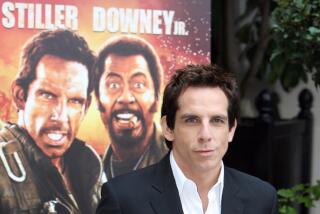Clearly, It’s a Plastic Language With Devious Overtones
- Share via
In its Quarterly Review of Doublespeak the National Council of Teachers of English proves that this insidious distortion of the language still thrives in our society.
It pervades business, politics, education, medicine and the military, and abundantly fulfills the prophecy of George Orwell in his novel “Nineteen Eighty-Four.”
Newspeak, as Orwell called it, was a language that served the police state by presenting lies as truth. The slogans of Orwell’s Oceania were “War is peace,” “Freedom is slavery,” and “Ignorance is strength.”
Such enormous lies do not sell in our democracy, of course, but the purveyors of doublespeak use it to deceive us in many less obvious ways.
In explaining President Bush’s swing from his pledge of no new taxes (“Read my lips”) to his acceptance of “tax revenue increases,” press secretary Marlin Fitzwater illustrated, unwittingly, what makes doublespeak so useful to politicians: its unassailable ambiguity. “We feel he said the right thing then and he’s saying the right thing now. Everything we said was true then and it’s true now.”
If any explanation was required, it came from Rep. Newt Gingrich: “He explicitly didn’t say ‘raise taxes.’ He said, ‘Seek new revenues.’ ”
Conducting a seminar on clear language, Air Force Lt. Col. James O’Rourke cites two examples of government doublespeak: “sea-air interface climatic disturbances” for waves, and “electronically adjusted, color-coded vehicular-flow control mechanism” for traffic light.
When NASA’s $1.5-billion Hubble Space Telescope failed expectations, the agency gave this explanation: “While HST was in a Pointing and Safemode Electronics Assembly (PSEA) self-test mode, engineers overlooked activating an Aperture Door (AD) inhibit switch and, operating as it should, the PSEA commanded the AD shut.” In other words, “HST acted exactly as it should have.”
There is no sewage in Portland, Ore. The City of Portland Environmental Services brochure calls it “sanitary wastes.” Seeking to avoid the sexist phrase manhole cover , the Sacramento Public Works Department received these suggestions for a substitute: sewer viewer, peoplehole, peephole, underground service access and person-access chamber .
A pervasive form of doublespeak is gobbledygook--the use of polysyllabic language to disguise one’s meaning. It is rampant in the business world.
As the economy begins to show signs of recession, corporations are using doublespeak to disguise the firing of employees.
A Chicago bank announced a program called “rightsizing the bank.” Its purpose was to “substantially reduce its payroll costs through reducing head count.”
A Vermont corporation explained the layoff of 15 employees: “This was not a cutback nor a layoff. It was a career-change opportunity.”
A foods corporation had a similar explanation for the layoff of 300 workers: “These are called schedule adjustments, not layoffs.”
Owners of a 61-story building in Philadelphia did not say they had sold an interest in it to a Japanese firm. They called the buyers an “offshore partner.”
A computer company advertises that in its product “a built-in graphical user interface frees you from learning confusing computer jargon.”
Two engineers said they were in “a reduced state of awareness” when their train, traveling at 72 m.p.h. through a 25 m.p.h. zone, jumped its tracks in a $1.7-million accident. The company said they were asleep. (At least it was refreshing in that case to see the company use plain English.)
An ad for a leaf blower seems to defy the laws of physics: “Reduces 10 pounds of leaves to 1 pound of mulch.”
On second thought, that isn’t doublespeak. The language is clear enough. It’s just doubtful as fact.
Doublespeak evidently is irresistible to educationists. A child was not bad, said one. It was just that “she engages in negative attention-getting.”
Facing a desperate financial situation (not enough money to meet expenses), an Eastern university reduced the number of its courses, cut its budget and laid off employees. It then explained these acts as in the interests of “selective excellence.”
A financial squeeze also provoked this announcement from another university: “We also intend to reduce our utility costs by reemphasizing common sense conservation measures. If a change in the interior environment becomes noticeable, personal attire modifications can be used to compensate and achieve a proper level of comfort.”
In other words, “We are cutting down on air conditioning. If it’s too hot, dress cool; and vice versa.”
Advertising is responsive to trends. A new camera comes with a roll of film in it. When the roll is exposed, the owner takes it to a developer who processes the film and throws the camera away. The camera is not called “disposable,” which might alert environmentalists. It’s called “single-use.”
John Silber, a candidate for governor in Massachusetts, when asked what he’d learned from the campaign, explained why most politicians develop a dependency on doublespeak:
“(The campaign) advises me to be less interesting, to learn to speak plastic, so that no one has the slightest idea what you’re talking about.”
Plastic is a good name for it, and it’s not doublespeak.
More to Read
Sign up for Essential California
The most important California stories and recommendations in your inbox every morning.
You may occasionally receive promotional content from the Los Angeles Times.













